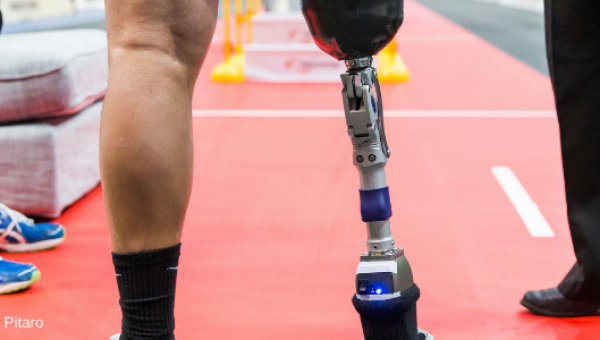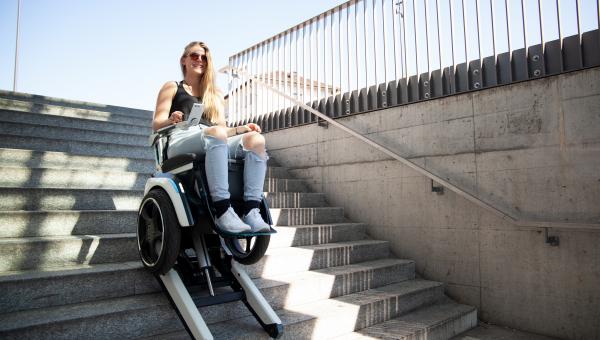The next level of biometric authentication

Multiple scans of a finger's vein pattern generate a unique biometric key - a world first from Switzerland.
We are used to pulling out our finger or showing our face to a camera for identification purposes. Whether we are travelling to distant countries or applying for a new biometric ID card, fingerprint identification has become the norm. However, crime thrillers have made it clear that public biometric information such as fingerprints, face, iris, voice and even DNA can be obtained without an individual's consent.
Farewell to identity fraud
More than ten years ago, Lambert Sonna, founder of EPFL spin-off Global ID, decided to tackle a widespread problem. A native of Cameroon, his idea stemmed from the simple observation that identity card fraud was commonplace in Cameroon and several other African countries. Such cards are used to obtain bank loans or to gain illegal access to medical services. Lacking effective detection tools, the authorities have been powerless to curb this trend.
The result of the research project is a novel finger vein biometric authentication system that takes multiple scans of the vein pattern in a user's finger and generates a unique vein map - or biometric key - that is virtually impossible to replicate.
Academic partnership turns ideas into reality
To tackle the project's technical challenges, three leading research institutions in French-speaking Switzerland collaborated: the Security and Cryptography Laboratory (LASEC) at the EPFL, the Idiap Research Institute in Martigny and the HES-SO Valais university in Sion. The Swiss Innovation Agency Innosuisse facilitated the development of the technology as part of an innovation project with sufficient funding.
Ready for the market
After years of research, operational pilots and various patent applications in the US, Europe and Asia, the VenoScanner is the first commercial product. The device was developed in collaboration with CSEM, a Swiss non-profit organisation known for its support of advanced technology development. Production is also based in Switzerland with a monthly capacity of 1,000 units. This portable scanner can be used in a wide range of applications, from authentication of financial transactions to border control and patient identification in hospitals.
Accessing health data for vulnerable populations
Lack of access to healthcare, conflict or instability can make it virtually impossible to accurately track participants' identification and medical records. In response, Global ID has announced a partnership with Project HOPE, a leading global health and humanitarian organisation, to deploy its innovative biometric authentication solution to manage participant data in health and emergency response interventions around the world. In an initial project, the technology will be used in Namibia for 75,000 people, with the aim of reducing HIV infection among vulnerable populations.




